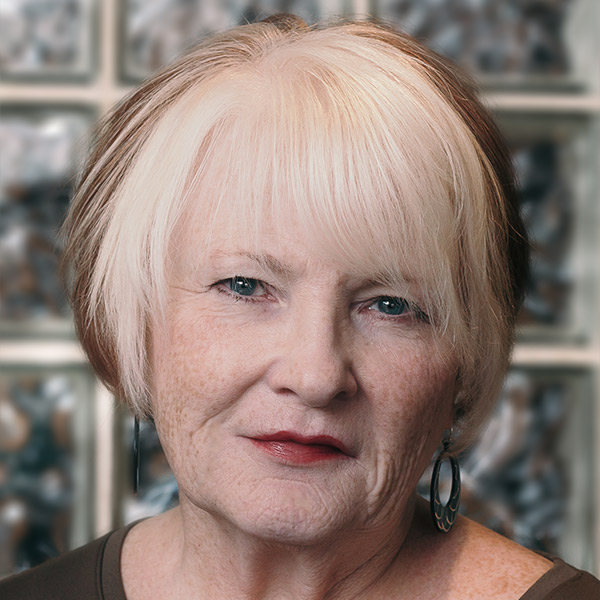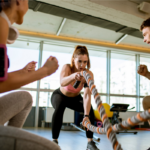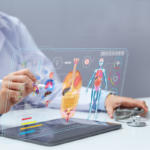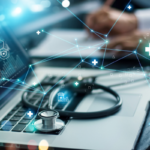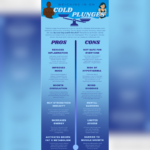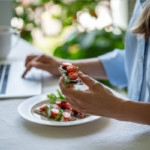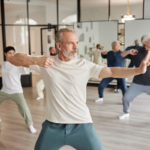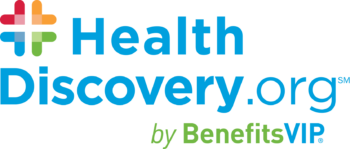I have my reasons for asking this question. I’m in my late 60s, and older people are bearing the highest impact of serious coronavirus complications. About 80% of Americans who have died of COVID-19 are age 65 or older.1 Frankly, I want to live to enjoy my upcoming retirement, which is why I always wear a face mask in public.
The Centers for Disease Control and Prevention (CDC) recommends wearing cloth face coverings in public settings where other social distancing measures are difficult to maintain, such as in grocery stores and pharmacies.
The spread of COVID-19 in my state and about half of the nation is accelerating. A Yale Medicine article says people may be spreading the virus even though they don’t experience symptoms or before those symptoms erupt. That’s why prevention, such as wearing a face mask, social distancing and hand-washing, remain so important.2
The CDC stresses the wearing of a face mask in areas of significant community-based transmission.3
But recently some people have resisted wearing a face covering despite the fact that 2.36 million in the U.S. have been infected by the virus. At the time of this article’s writing, at least 124,000 have died from it, according to data from Johns Hopkins University.4 While the consequence of infection is typically much harsher in older people like me, the cruel lesson of this pandemic is that anyone can get very sick from it and even die. That’s another reason I wear a face mask: to protect others.
COVID-19 Risks to Children
While severe complications in kids are uncommon, representing just 1% to 2% of reported cases, the novel coronavirus may trigger a rare set of symptoms in people under age 18. Among these symptoms: lengthy fevers, low blood pressure, rashes, red eyes, stomach upset and inflammation of the heart and arteries. In late May, the CDC issued information to pediatricians to be on the lookout for these symptoms, now named multisystem inflammatory syndrome in children.5
Data on child COVID-19 patients also indicated that the majority of these patients who needed hospitalization had at least one underlying medical condition.6 The most common pre-existing conditions impacting kids were chronic lung disease (such as asthma), heart disease and illnesses that weaken the immune system.7 While initial reports labeled COVID-19 as an old person’s disease, it’s now understood that anyone can catch it. The youngest person to be diagnosed with the disease was a newborn in the United Kingdom.8
COVID-19 Risks to Otherwise Healthy Adults
The virus also impacts young, healthy adults. In most cases, these people experience milder symptoms, but some young and middle-aged patients have died suddenly from strokes.9 Researchers with Philadelphia-based Thomas Jefferson University Hospitals and New York City-based NYU Langone Health and Mount Sinai Beth Israel Hospital plan to publish data regarding COVID-19 patients in their 30s to 40s who’ve suffered strokes. Although there are only a few dozen cases per location, data suggests these individuals have mostly experienced “large vessel occlusions” (LVOs), the deadliest kind of stroke. LVOs can destroy parts of the brain responsible for movement, speech and decision-making.
COVID-19 Risks to Everyone
A forecast published by the CDC is projecting that the COVID-19 death toll could increase to 130,000 by July 4.10 Currently, Texas, South Carolina, Utah, Arizona, North Carolina, Arkansas, Alabama, Oregon, California, Nevada and Florida have reported spikes in new infections. As infectious disease experts in the U.S. warn that the virus is not going anywhere,11 some officials in different parts of the country are pausing reopening plans and threatened renewed shutdowns.12
Would masks have made the difference in preventing a spike? Yes, public health and medical experts say they help slow the spread of the virus.13
That’s why I’m baffled by comments I’ve read in the news and social media posts:
Wear a mask? That’s for sissies.
Practice social distancing? That’s an overreaction.
Coronavirus? That’s nothing but a hoax.
I’ve even been exposed to conflicting information in my doctor’s office. Patients must get their temperatures checked and wear a mask before entering the reception area, where chairs are removed to support social distancing. Yet a nurse who works with my doctor told me that COVID-19 is a “weak virus,” and insisted that the news about its spread is nothing but hype that generates hysteria.
When my doctor entered the exam room wearing scrubs, a mask, face shield and gloves, the disconnect between these two healthcare professionals was glaring.
“Do you think COVID-19 is a weak virus?” I asked the doctor.
“Absolutely not,” he replied. He said he takes precautions to protect his patients from infection. He also takes these measures to protect his wife and two young children. “Anyone can get COVID-19,” he said, “especially people like you. That’s why you need to wear a mask anytime you’re around people you don’t live with.”
The reason my husband and I wear masks isn’t just to protect us. Because there is asymptomatic spread out there, we wear masks to protect people from us. We are careful because too many people have gotten sick, too many people have died, and not one human being is expendable.
We don’t want to contribute to the COVID-19 pandemic—we want to be part of the solution.
2Yale Medicine, “5 Things Everyone Should Know About the Coronavirus Outbreak”
3CDC, “Recommendation Regarding the Use of Cloth Face Coverings, Especially in Areas of Significant Community-based Transmission”
4Johns Hopkins/CNN, “Tracking COVID-19 Cases in the United States”
5CDC, “Information for Pediatric Healthcare Providers”
6WebMD, “COVID-19 May Trigger Rare Complication In Children”
7CDC, “Frequently Asked Questions”
8Guardian, “Why are Young, Healthy People Dying Of Coronavirus?”
9Washington Post, “Young and Middle-Aged People, Barely Sick with COVID-19, are Dying of Strokes”
10CNN, “CDC Predicts 130,000 U.S. Coronavirus Deaths By July 4”
11The New York Times, “What We’ve Learned about the Coronavirus”
12The Oregonian, “Governor Puts Statewide Halt on Reopening Amid Coronavirus Surge”
13Mayo Clinic, “COVID-19: How much protection do face masks offer?”
MORE RESOURCES
Healthline, “A Certain Type of N95 Mask May Do More Harm Than Good”
U.S. Food and Drug Administration, “N95 Respirators, Surgical Masks and Face Masks”



